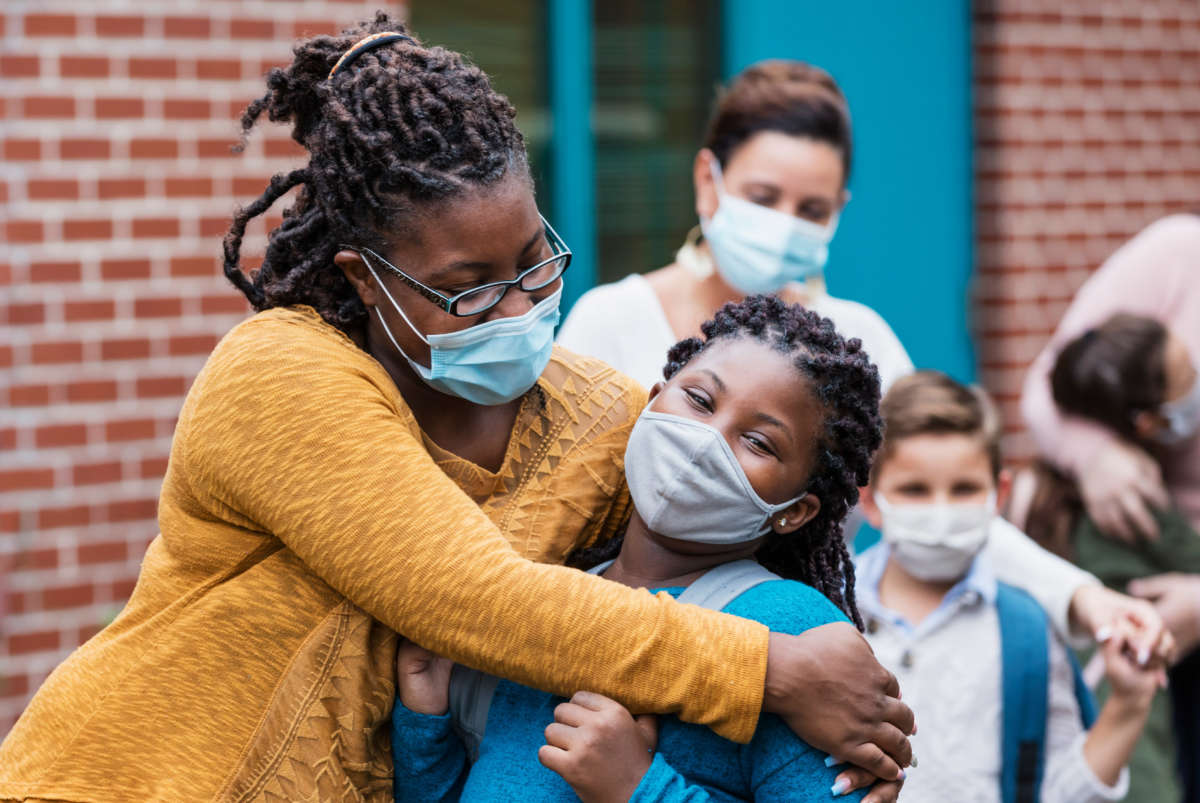Honest, paywall-free news is rare. Please support our boldly independent journalism with a donation of any size.
President Biden’s emergency relief plan includes a substantial investment in WIC to help it reach more eligible families, marking one of the plan’s several food assistance expansions to reduce today’s high levels of hunger and hardship. WIC, which is federally funded but operated by local clinics, provides low-income pregnant individuals, new parents, babies, and toddlers with nutritious foods, nutrition education, breastfeeding support, and referrals to health care and social services — but millions of eligible people aren’t enrolled.
WIC (formally the Special Supplemental Nutrition Program for Women, Infants, and Children) has a proven record of improving lifetime health for women and their young children. Participating in WIC leads to better health for infants, more nutritious diets and better health care for children, and higher academic achievement for students. Connecting more eligible women and young children to WIC could also reduce stark racial disparities in these areas.
Unfortunately, the share of eligible families participating in WIC has fallen over the past decade; about half of eligible low-income individuals weren’t enrolled in 2017, the most recent year for which we have these data. The number of WIC participants continued falling through the early months of fiscal year 2020, and while it rebounded somewhat during the pandemic, it remained lower than the previous year even as child hunger soared to unprecedented levels. Up to 1 in 6 adults reported in mid-December that their children didn’t get enough to eat in the last week. Black and Latino adults were more than twice as likely as white adults to report that their household didn’t get enough to eat.
Funding for WIC benefits hasn’t been a barrier to enrollment. WIC is funded through the annual appropriations process and for more than two decades has received enough funding to serve all eligible applicants. But additional, targeted investments would enable WIC to deliver services more effectively, such as by modernizing procedures so families can participate without taking time off work or bringing children to multiple appointments. Those investments would also enable WIC to improve participation by coordinating with other programs that reach families with infants and young children, such as Medicaid, SNAP, and maternal and child health programs, together with leadership from federal and state maternal and child health experts.
To provide services during the pandemic, states accelerated modernization efforts such as accepting electronic documents and offering virtual appointments. But they’ll need continued support to integrate these steps into ongoing program operations and develop technology solutions that are more comprehensive, secure, and widely usable than those that they developed hastily last spring.
The Biden plan’s funding would enable joint efforts by the departments of Agriculture and Health and Human Services to modernize WIC, strengthen cross enrollment, conduct intensive outreach, and fund state innovation. The funds could support activities that would benefit from federal coordination and multi-year investments, such as:
- Building a single online entry point where a family in any state could start a WIC application that would be routed to their local clinic to see if they are eligible.
- Ensuring that Medicaid, SNAP, and WIC data systems can readily share data to identify families that are eligible for WIC but not enrolled.
- Determining how many families participating in Medicaid or SNAP are eligible for WIC but not enrolled, developing robust referral mechanisms, and conducting targeted outreach to them, as detailed in the WIC Enrollment Collaboration Act of 2020.
- Facilitating collaboration between WIC agencies and community health partners, including health care providers, social services programs, and early childhood learning and care providers to conduct outreach to potential WIC participants, as detailed in the CARE for Families Act of 2020.
- Creating a state innovation fund to help states develop and implement innovative service delivery models, customer-facing digital tools, partnerships with health care or social service providers, or outreach campaigns.
Because enrolling more eligible families in WIC could improve maternal and child health outcomes while reducing racial disparities, investments made now would pay off for years to come.
A terrifying moment. We appeal for your support.
In the last weeks, we have witnessed an authoritarian assault on communities in Minnesota and across the nation.
The need for truthful, grassroots reporting is urgent at this cataclysmic historical moment. Yet, Trump-aligned billionaires and other allies have taken over many legacy media outlets — the culmination of a decades-long campaign to place control of the narrative into the hands of the political right.
We refuse to let Trump’s blatant propaganda machine go unchecked. Untethered to corporate ownership or advertisers, Truthout remains fearless in our reporting and our determination to use journalism as a tool for justice.
But we need your help just to fund our basic expenses. Over 80 percent of Truthout’s funding comes from small individual donations from our community of readers, and over a third of our total budget is supported by recurring monthly donors.
Truthout has launched a fundraiser to add 460 new monthly donors in the next 8 days. Whether you can make a small monthly donation or a larger one-time gift, Truthout only works with your support.
